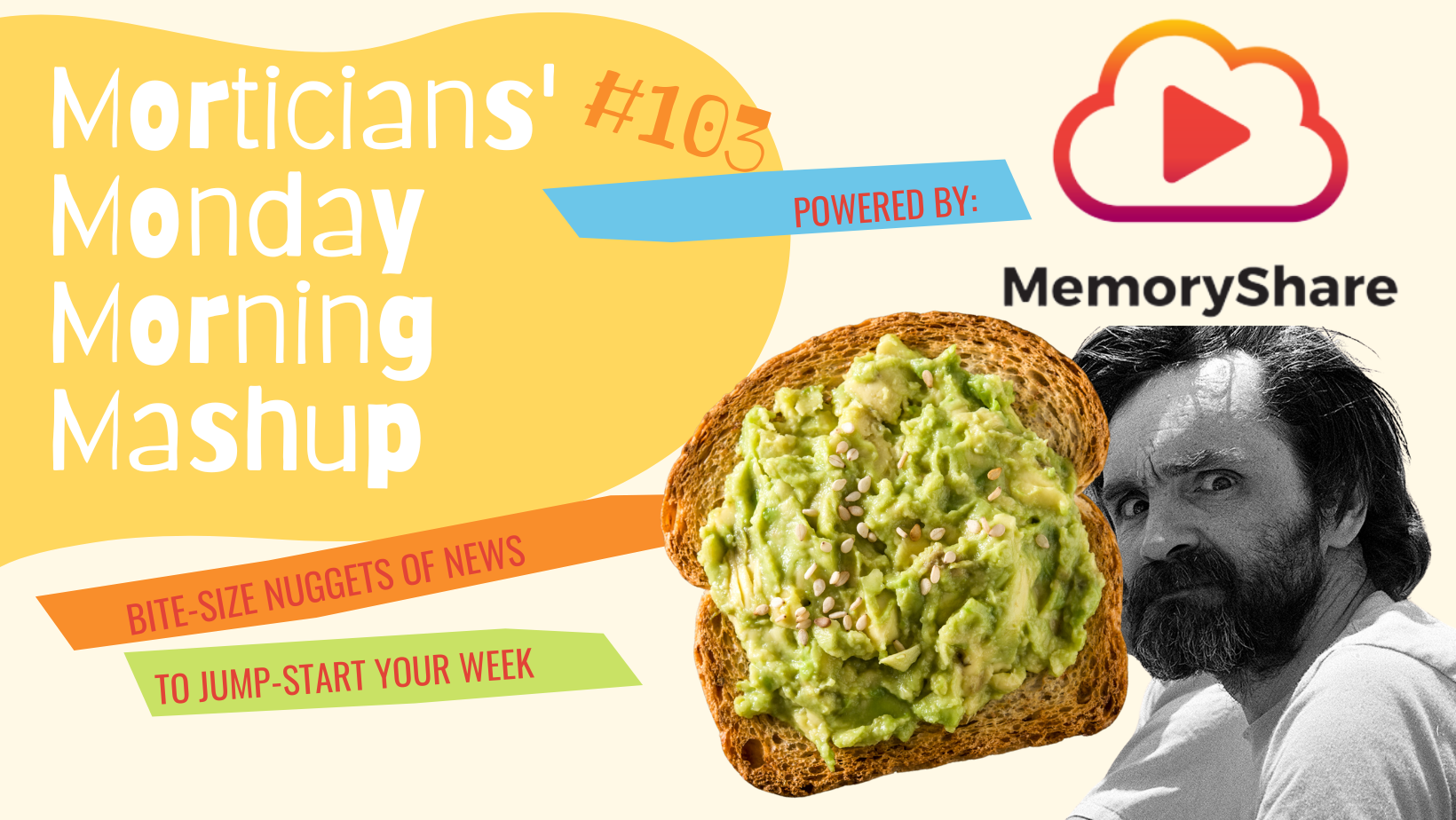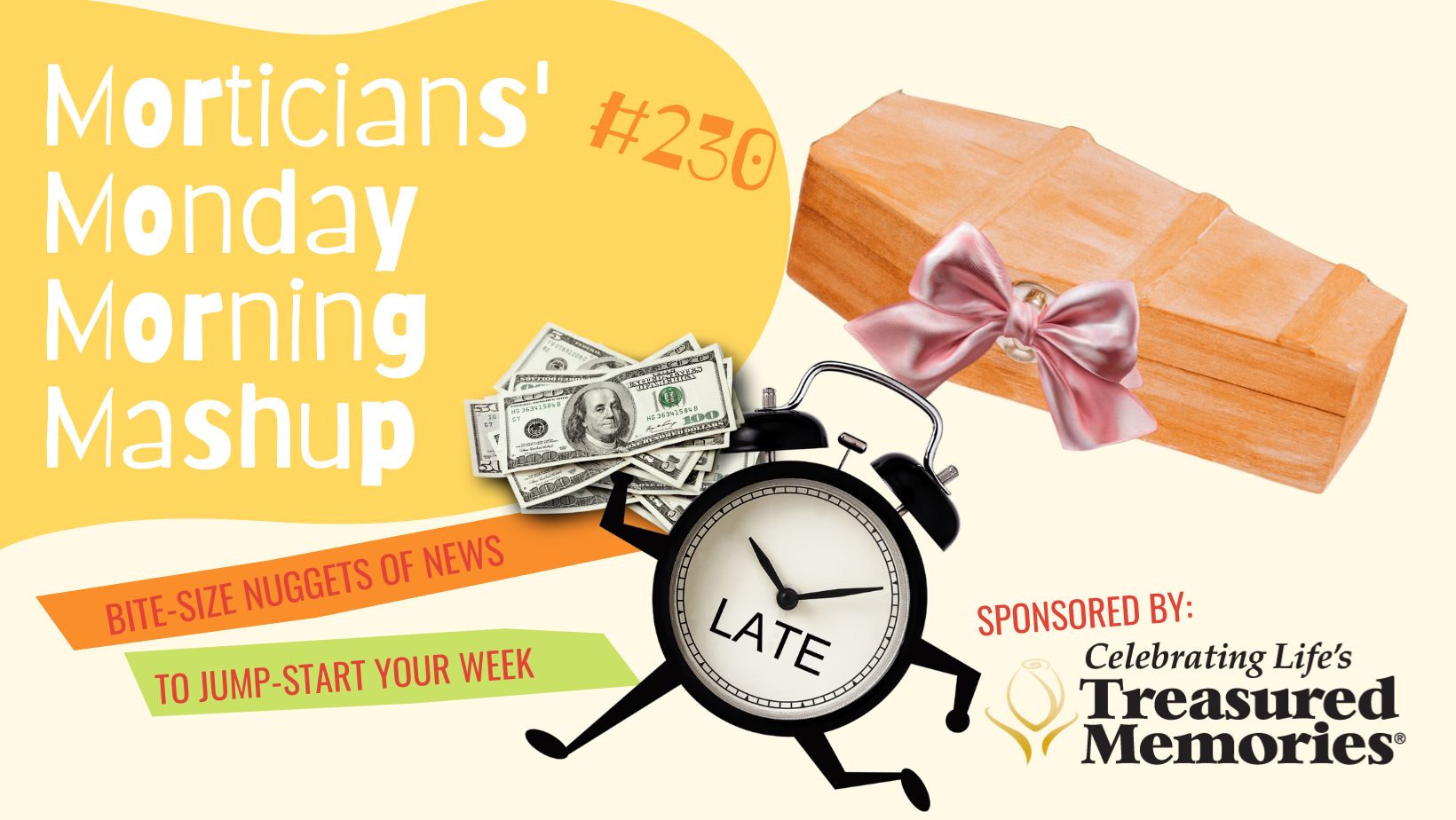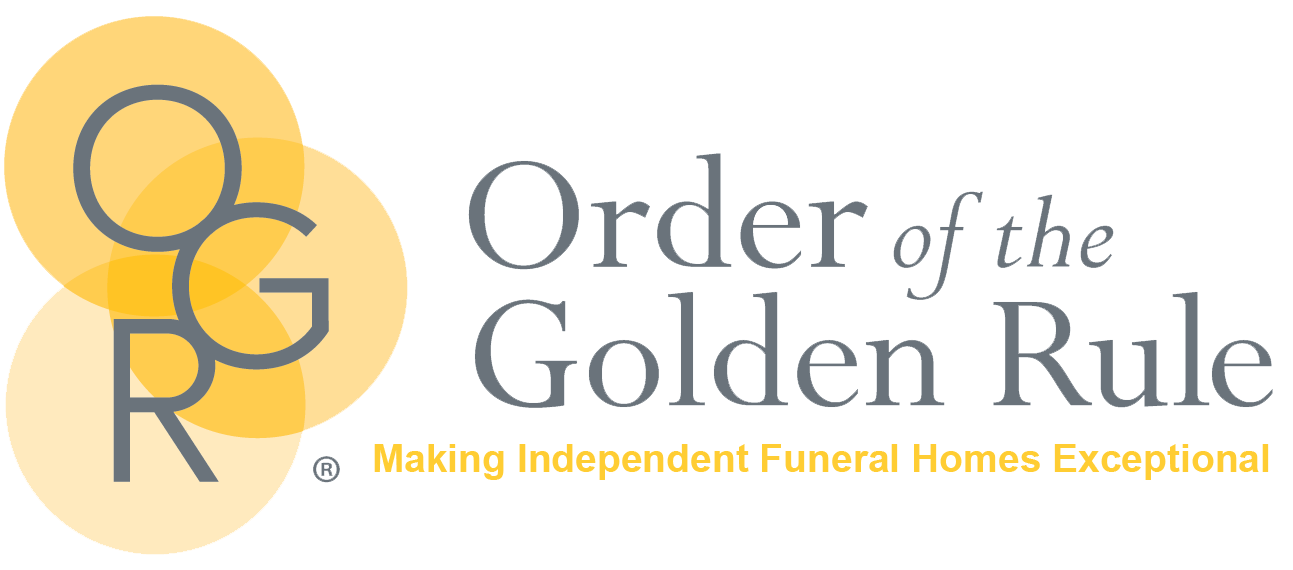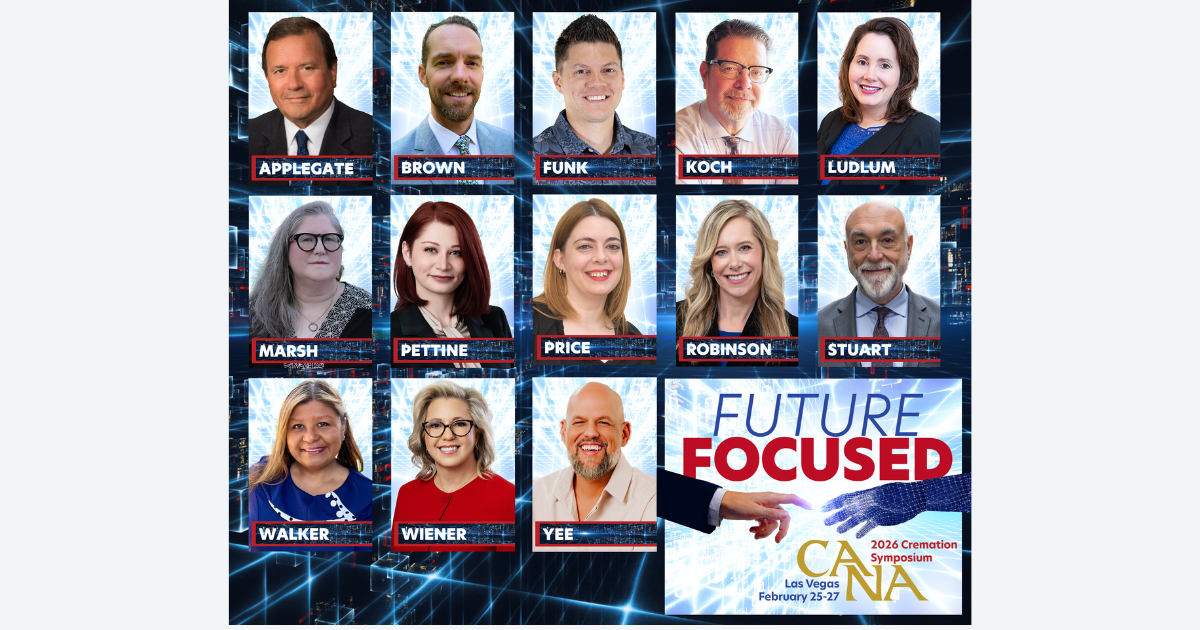Avocado Toast & Cultish Cremains | 4M #103
Welcome to the hundred-and-third edition of Morticians’ Monday Morning Mashup, 4M #103, where we’ll serve up bite-sized, easily-digestible nuggets of the deathcare news you need to crush conversations in the week ahead. Bon appetit!
This newsletter is powered by MemoryShare, a funeral livestreaming platform that you can set up in 30 seconds or less.
Just read it
Although at first glance the title “My parents are dead—can I afford avocado toast now?” seems a little cheeky, this personal essay by Becky Robison in Salon is well worth a read by every deathcare professional. In her essay, Robison tackles the real-world concerns and challenges of the ever-growing population of ill-prepared millennials who are unexpectedly saddled with handling final arrangements and estate matters for their boomer parents. If you haven’t yet encountered this situation, chances are good that you will. Robison’s chronicle of her ongoing struggles, which she also documents on her website, is one of the best advertisements for preneed that we’ve ever read.
Minnesota’s getting ready
Minnesota legislators blocked a 2022 bill to legalize natural organic reduction, and a new 2023 bill was recently pushed to next year’s agenda. However, those setbacks haven’t deterred folks from preparing for the eventual arrival of legal NOR. One entrepreneur, Erik Halaas, recently won a $50,000 stipend to “establish what’s billed as Minnesota’s first ‘natural organic reduction facility’” through an organization called “Live On Minnesota.” While Halaas works on his project and residents wait on the government, NOR is still an option. Interra Green Burial, an offshoot of St. Paul-area Mueller Memorial, currently partners with Return Home to arrange transportation to and from Washington state for NOR services.
Dear Abby and a surprise cremation
Legendary advice columnist Abigail Van Buren recently received this deathcare-related question from reader “No Family Closure”:
Dear Abby: “I have a family issue concerning the recent, untimely death of my only (younger) brother, who died of pneumonia in Georgia. His wife had him cremated the following day instead of having a funeral. She didn’t inform his immediate family about it until it was over. Was that legal? And was it the right thing to do?”
Abby’s answer: “When a married individual dies, it is legal for the surviving spouse to determine what will happen to their loved one’s remains. We don’t know if the subject of funerals, memorials, burials or cremations was ever discussed between your brother and his wife. If you are wondering, rather than judge her, ask her. He may have expressed a wish not to be put into the ground, or he may have been cremated for financial reasons. While you are at it, ask if she’s planning any kind of memorial. If she isn’t planning anything, you may want to host one for yourselves.”
Well, that’s a weird gift
For whatever reason, two artists recently joined forces to create a shrunken head sculpture in the likeness of convicted murderer and cult leader Charles Manson, who died in prison in 2017. As if that wasn’t cringe-worthy enough, the project included strands of Manson’s hair and some of his cremated remains, both of which were gifted by a “close friend of Manson’s.” TMZ shared images of the cremains creation, which is just as creepy as you might imagine. They also noted that one of the artists “has a history of using Manson’s remains in his art … even using ashes in a ‘Helter Skelter’ tattoo for one Manson fanatic.”
Kudos time!
In the last two 4Ms we’ve shared a lot of bad news about cemetery issues and morticians dealing with legal troubles. This week we’re thrilled to find several items that reflect and celebrate the true character of deathcare professionals:
- Baltimore’s John Williams of John L. Williams Funeral Directors joined his friend Corey Larkins, who works at William C. Brown Community Funeral Home, to help reduce the city’s high homicide rates. Larkins leads the annual “Ride for Peace,” in which a “caravan of hearses processes through the streets of West Baltimore, joined by local clergymen, and members of the police department.” Williams commented that he “would much rather bury little old ladies, World War II veterans, and just lay them peacefully to rest, as opposed to hearing mothers cry. It’s not normal for somebody to be murdered at 18, 19, 22-years-old.” This “harsh dose of reality” might be making a difference, as Baltimore’s homicide rate is a little lower this year than in 2022.
- Former police officer and current funeral director Eric Daniels recently hosted “Last Responders Celebrating First Responders” cookout event at Cuffe-McGinn Funeral Home in Lynn, Massachusetts. This year, Daniels and the Cuffe-McGinn team fed and honored more than 70 members of the city’s police department, fire department, and emergency medical services at the annual event.
Say goodbye to Facebook
If you’re using Facebook for live streaming, does this sound familiar?
- Copyrighted music is silenced (even with proper certifications!)
- Advertisements out of your control pop up during the livestream
- It’s difficult for families to access because it requires a Facebook account
This is why Carlton Stevens Jr., Operations Manager and Mortician at Stevens Funeral Home in North Carolina, said goodbye to Facebook and switched to MemoryShare—a live streaming platform built specifically for funeral professionals.
“Now, families don’t have to worry about Facebook accounts. It works, and it’s easy to use,” Carlton said. “It’s the best, I’m telling you. It’s liquid gold.”
After he started offering live streaming during the pandemic, Carlton saw Stevens Funeral Home call volume bump from 20 calls to 41 calls.
Today, Stevens Funeral Home live streams a service every other day.
And with MemoryShare, all they have to do is push a button.
“It’s a no brainer,” Carlton said.
Read how Carlton is using livestreaming to grow his business in our latest case study—click here to read it!




